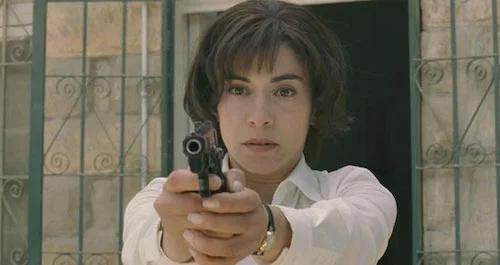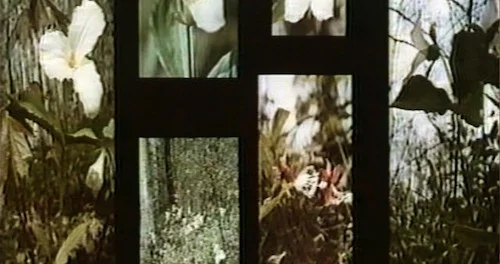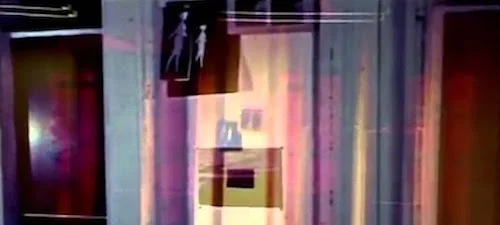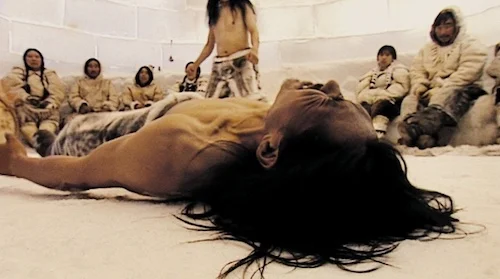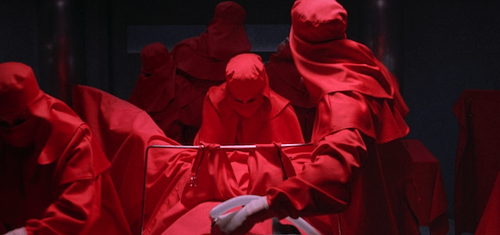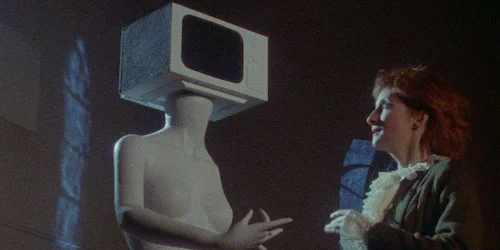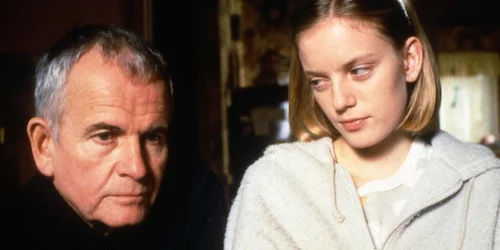The Ten Greatest Canadian Films for Canada Day
An experiment I did when I wrote for Fandor was looking at the greatest Canadian films of all time. This was to celebrate Canada Day, naturally. I discovered the origins for Canadian cinema while studying at the Archives of Ontario (during their 150th anniversary of Canada) and at the Toronto International Film Festival archives. Canadian cinema is a misunderstood mutt of European arthouse and tight budgeting. A lot had to be said with very little means. Maybe in the new millennium, Canadian cinema is being viewed differently. With directors like Deepa Mehta and Xavier Dolan, the world is getting a new look at great Canadian films.
What are we looking for on this list? Authentically Canadian films. That means no The Fly by David Cronenberg, as much as I adore that film (it has American producers). Co productions are fine. Secondly, I am going to limit the list to one film per director (so, yeah, one Cronenberg film). I'm also going to look for impact, creativity, and national identity. Here are the ten best Canadian films of all time. Happy Canada Day!
To see my Fandor list, click here.
10. Room
This major Oscar contender may be one of the more successful Canadian films ever made. Sure, its Canadian identity is not made explicitly clear in the film itself, outside of the humble homes. Its take on struggle is universal, though. Plus, outside of a bravura performance by Brie Larson, we have a breakout take from Vancouverite Jacob Tremblay. Watching this film as a Canadian really drives home how these kinds of crimes can be committed even in the most quaint neighbourhoods.
9. A Place to Stand
Although a short film meant for an exhibition, A Place to Stand is still vital when it comes to Canadian innovation. Christopher Chapman's multi-dynamic image usage has been used ever since (including the opening sequence for The Brady Bunch, amongst hundreds of other cinematic and television productions). My opinion? A Place to Stand does it best. We get the sense of tight knit multiculturalism within seconds, and get to ingest the visual display for the remaining duration.
8. Wavelength
Michael Snow is one of the great contemporary Canadian artists (you may know him for his Eaton Centre geese, but he has done much more than that). He dabbled in cinema as well, you could say. His impact was immediately felt with his experimental feature Wavelength: a practice in camera placement, framing, narrative space and environment. This glacially spellbinding piece changed the course of camera operation in film, enough that the Toronto International Film Festival has its own Wavelengths program each year to honour experimental works of a similar fashion.
7. Atanarjuat: The Fast Runner
One of the most successful Aboriginal films of all time, Atanarjuat: The Fast Runner is a mythical epic that utilizes nothing else outside of performance and the snow around. Sometimes, scope can surpass special effects. With Atanarjuat and its dedication to storytelling, we get a film that opened the eyes of millions. Not just to an industry. Not just to a community. Not just to a nation. To an entire world they had missed before.
6. My Winnipeg
Picking one Guy Madden film is extremely difficult once you get to know the guy. Yet, going the safe route with My Winnipeg -- while a lazy choice -- makes the most sense. Most of the time with his works, you dive into his new cinematic realm where film operates a little bit differently. With My Winnipeg, his surreal documentary fantasy captured the attention of everyone (including Roger Ebert). Do we learn more about him through his fictional elements? Does lying make a personal memoir more candid? This is the dive into the mind of an artist like no other.
5. Warrendale
If you are familiar with cinéma vérité, Warrendale needs no introduction. If not, this is a French style of filmmaking that allowed the camera to be a fly on the wall during documentary films. With that in mind, the confrontational Warrendale is one of the best exhibitors of this style. Taking place in the titular hospital, the entire purpose is just to analyze the days in the lives of mentally distraught youths in Toronto. This was a major cinematic statement on the stigmas surrounding mental illness, as well as an upfront discussion about the open discussions documentaries can have (when subjects take priority over biases).
4. Dead Ringers
A History of Violence. Videodrome. Scanners. There are too many good David Cronenberg films to pick from. Dead Ringers comes out on top, because it seems to be the Cronenberg film that ages the best as time goes by (outside of the insanely disturbing Crash, mind you). With Jeremy Irons playing a pair of twin gynaecologists, Dead Ringers is a dismally rich film that operates as eerily as medical diagrams would. Much of the film is fixated on the visually unfamiliar (those tools!), yet we go forth and endure the tests ahead nonetheless. When we reach the gorgeously deranged ending, you'll be quick to remember that no one does sick like Cronenberg.
3. I've Heard the Mermaids Singing
Patricia Rozema's romantic dramedy is the kind of pop culture fighter that has entered the peripheral vision of cinephiles many years after release (perhaps more now than before). Is it the open conversation about queer relationships? Is it Sheila McCarthy's infectiously sweet performance? Heartache is heartache, and it transcends all labels. Dreams are also shared. We follow both lows and highs in I've Heard the Mermaids Singing: what was once Canada's most underrated gem (I'm happy to say that may not be the case any more).
2. Incendies
Denis Villeneuve is an obviously popular Canadian director nowadays. His reign in the 2010s did not come from out of nowhere. After the hypnotic Polytechnique, he returned with Incendies: one of the most punishing films of all time. We're talking The Battle of Algiers and Come and See levels of heavy. This familial political drama is gut wrenching from frame one, and it never lets go. By the end, you may be worn out. This level of maternal sacrifice is unlike most in cinematic history. Be sure to have time to yourself after the film.
1. The Sweet Hereafter
There aren't many popular films as Canadian as The Sweer Hereafter. Atom Egoyan took a novel set decades prior in the United States, and decided to make it about Canadian identity and the threat of disaster. The Sweet Hereafter is an arthouse film disguised as an Oscar darling (it went up against Titanic in the Best Director category, for crying out loud). A good chunk of the film is uncomfortable, because we have witnessed the severance of a loving community after an unfortunate accident. Between its signature roots, the treatment of devastation, the risks taken, and the slight conventionality to make the world listen, The Sweet Hereafter might be the best Canadian film of all time.
Andreas Babiolakis has a Masters degree in Film and Photography Preservation and Collections management from Ryerson University, as well as a Bachelors degree in Cinema Studies from York University. His favourite times of year are the Criterion Collection flash sales and the annual Toronto International Film Festival.

